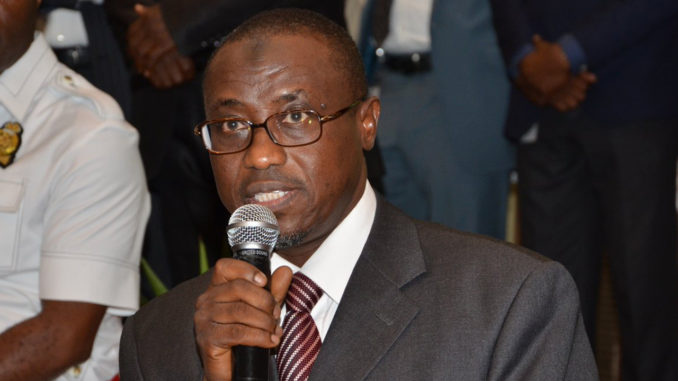
Recently, the Group Managing Director of the Nigerian National Petroleum Corporation (NNPC), Dr. Maikanti Baru, confirmed the return of the regime of subsidy payment on Premium Motor Spirit (PMS). According to him, the payment is at the instance of President Muhammadu Buhari who, as the Minister for Petroleum Resources, instructed him to ensure that petrol did not sell above N145 per litre. Baru’s disclosure came amid public outrage over the misery inflicted on Nigerians by protracted fuel scarcity, while the blame game over the scarcity persisted.
Baru said the subsidy on petrol was currently N26 per litre, as the landing cost of imported PMS stood at N171.40 per litre, ostensibly due to economic vagaries occasioned by the global prices of oil, whereas the selling price of the commodity is N145. Baru merely corroborated the disclosure by Vice-President Yemi Osinbajo, who had earlier confirmed the return of the subsidy payment to sustain a seamless fuel supply chain in the system. Osinbajo tried to justify the strange and curious development on the ground that the corporation was trading in fuel, a regime that involved N26 billion.
In spontaneity, the Senate, through its Chairman, Committee on Petroleum Resources (Downstream), Senator Kabiru Marafa, vowed to stop the illegal subsidy regime as it was not, in the first place, appropriated for. Consequently, he said the NNPC and other stakeholders in the sector would be made to explain their roles in the alleged subsidy payment more than a year after its stoppage. “We cannot go back to such a scam called subsidy regime which robbed the country of N10 trillion between 2006 and 2016,” Marafa said.
Baru’s revelation was a rude shock, as there was no evidence that the money followed the due process. Only the National Assembly has the power of appropriation. As such, any breach of this practice is tantamount to an impeachable offence. The dictate of the law is that such funds must pass through the furnace of the National Assembly as enshrined in sections 59, 80 and 81 of the 1999 Constitution. It would have amounted to complicity and abdication of its functions and powers if the Senate had kept quiet in the face of the obvious breach of the constitution. However, its outcry on the matter does not obviate the fact that the issue at stake is deeper because it exposes the underbelly of the nation’s democratic practice. The Senate must go beyond acknowledging the malfeasance and disregard for the principle of separation of powers and transparency. It must ensure a thorough and painstaking examination of the infraction. All those behind the subvention and abuse of the due process on the matter must be prosecuted.
The argument that the NNPC, and not the government, is subsidising petrol is specious and untenable. It vitiates the cardinal principles of good governance and constitutionality. Who owns the NNPC? Where did it derive the law guiding its existence and operations? When has the corporation acquired the status of a sovereignty? Is the NNPC no longer responsible to the Nigerian state? Is it proper, legal and constitutional for the NNPC to dip its hands into money that should go into the Federation Account, which statutorily belongs to all the three tiers of government: federal, state and local government? Does the NNPC not subject its budget to legislative scrutiny?
Though all the three arms of government exist and operate on the basis of interdependence to guarantee smooth and quality governance, the need to respect and uphold the democratic values, ideals and virtues is sacrosanct for the sustenance of the rule of law. In this instance, one arm of government has tried to usurp the powers and authority of the other. The National Assembly must exercise its power of appropriation and whoever is found to have undermined the process should be sanctioned based on the provisions of the 1999 Constitution. This is the way to go if democracy must grow and blossom in the country.
END

Be the first to comment